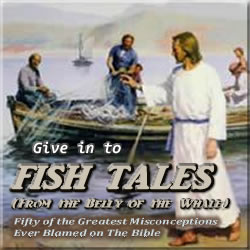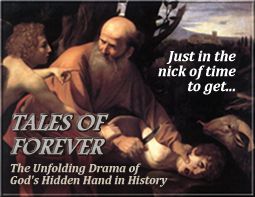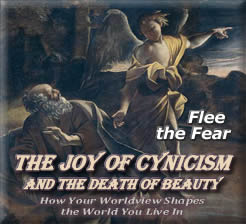A Firm Foundation
A Time of Rediscovery
Whenever you hope to build something of lasting value, it’s always wise to build it on a firm foundation. That’s why I’ve built this work, On Earth as It is On Heaven, on the foundation of the first two books I’ve written, namely Tales of Forever and Fish Tales (From the Belly of the Whale).
If you’ve already read them, then all the better, because those who have will be better equipped to receive my conclusions in this book. However, even if you haven’t read them, then hopefully what I’ll describe here will prepare you to receive them.
As for Tales of Forever, the first key takeaway is how it establishes a clear pattern of God’s word being given to humanity, then of that knowledge being lost, then of it being found again after a “set time” of punishment has expired.
This pattern of “lostness” is one in which God bestows His wisdom through His chosen messengers, but because of complacency and pride that message is, over time, taken for granted and marginalized, so God removes that knowledge from the Earth as a wakeup call.
Then after a specified period of time has run its course, which usually corresponds to the time humanity had been gifted with that wisdom, there’s a time of rediscovery and reawakening, with the next group being afforded the opportunity to succeed where the previous group failed.
Story Continues Below
Says Richard Price—the founder and CEO of Academia.edu—on his podcast In Depth With Academia:
On Earth as It is On Heaven: The Promise of America, Technology, and the New Earth is:
To hear Price’s book review of On Earth as It is On Heaven, CLICK HERE.
To hear Kent discuss the promises of God that pertain to God’s Kingdom on Earth, particularly as they pertain to the nations of the West, with Zen Garcia, the host of the Internet talk show Momentary Zen, CLICK BELOW.
Story Continues From Above
This happened in The Old Testament period when The Bible was lost during the Babylonian Captivity, until Ezra, like Enoch long before him, miraculously authored the books that then restored its lost contents.1
And it happened again in The New Testament period when The Bible, as we presently know it, was “lost” during the Dark Ages when it was imprisoned in Latin so that only a cadre of elites could read it, until John Wycliffe in 1381 began the process of translating it into the language of the common people.
By 1387 Dutch lay preachers called Lollards, which means “wanderers” in Dutch, were roaming the English countryside, inspired by Wycliffe’s belief that everyone deserved the opportunity to read God’s word for themselves, and not just a handful of cloistered scholars.
By the way, the idea that “wanderers,” or “outsiders” as they were deemed by the mainstream, spearheaded the great awakenings in biblical history is one of the cornerstones of this book, as we’ll see throughout this work.








